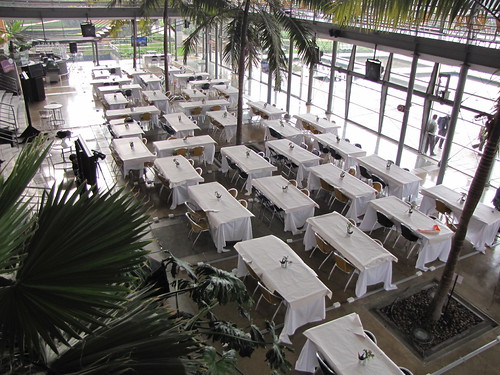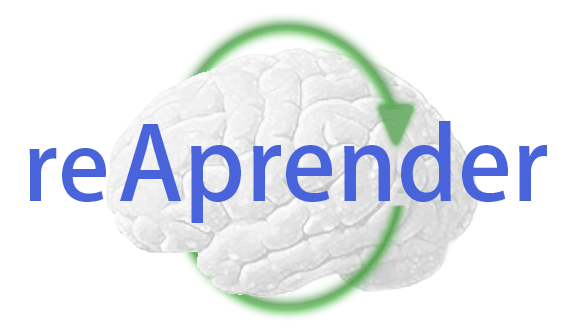(Disclaimer: Please be patient with my English. I'm open to suggestions for improvement ![]() )
)
Last week, the Ministry of Education of Colombia held the National Forum on the Pertinence of Education. This is an annual event focused on a different area each year. Given that 2009 was declared the "Year of education for innovation and competitiveness", there was a discussion around things that make education pertinent, and an interest in presenting innovative experiences.
As part of this event, I wanted to organize a TEDx session, but as it turned out, TED requires TEDx events to be independent from any other event. This is unfortunate (and I really think it must be reconsidered), because in many places (at least, in our case) the purpose is not to use TED's brand to get people to come to some event (on its own, our Forum congregates over 1500 teachers from all over the country), but to spread ideas included in TEDTalks. So, bottom line, I can't use the TEDx name, even if I'm using TEDTalks and I want to recognize that.
This situation (and a look to the Forum agenda) made me think about the need to give participants a place to talk about what was being discussed at the Forum. There were a lot of presentations, expert panels, and not enough time to bring those discussions to the context of every person. So I decided to change my approach.
My initial idea around the TEDx session was to have 2-3 sessions, 1.5 hours each. I wanted to have local presenters and several TEDTalks per session, related to global issues. However, most TEDx events are based on an auditorium format, which is not very useful for discussion. Happily, I could take advantage of a large space we would be using during the Forum to do an EduCamp workshop, so I decided to put more focus on conversation and less on presentation.

Enter the World Café, which ideas I had use in the past. Our new design included two sessions: The first one called Reboot and the second, Engage (which, by the way, were the names of the first and last sessions of TED2009).
The first session was devoted to think about the way global issues reflect on our context, and to try and find the critical issues at hand. As a conversation starter, we used talks by Al Gore, Charles Moore and Arthur Benjamin. Because of the setting, we decided to limit the time of talks, because it would be quite difficult to capture people's attention for too long. So all the talks would not last more than 20 minutes. After this, we had a one-hour Café session, with 3 rounds.
The second session was devoted to explore concrete ideas/actions that each participant could develop in her own environment, in order to address local effects of global issues. Once again, a TEDTalk (this time by Seth Godin) was used as a conversation starter. Once again, we had a 3-round session.
 |
During each conversation, we had music from different sources playing in the background: TEDTalks, Playing for change (I still have doubts about if it's even legal to play from YouTube) and Kutiman. I mentioned the last two were an example of new and creative ways to create collaboration between people who never met before.
Each participant received a "program" including the different talks and music we would be using, which she could use also to write down the contact info of other participants.
At the end of the session, we reminded everyone that the talks available online and the World Café ideas could be used by them to do these kind of sessions in their own institutions.
Some bad things:
 |
- The time: The session was scheduled on day 2 of the Forum, at 4:00p.m. I think it would had been better on the last day (which was not possible for reasons beyond my control), and earlier in the afternoon. 4:00 was too late for a lot of people and, even worse, there was a delay in the whole event, which meant we started around 4:45. In the end, there were not as many people as we expected (we were expecting 200, 97 arrived). Because of this, some part of the space felt empty.
- The weather: There has been a lot of rain in Bogotá in these days. Last Wednesday was no exception. Around 5:30, it started to rain and the temperature went down. The spacious setting is way too open, so it was really (really) cold for a lot of us. Even with coffee, the rain (and the huge traffic jams that it creates in the city) helped to reduce the amount of people at the end, which at the same time made very difficult to get a good closure.
- Because we had to change the name of the session (we moved to the name EduCafé at last minute), there was a "communication failure", I'd say. It was not that easy to communicate the purpose of the session to some people...
Some interesting things:
 |
- In my experience, I've found that many teachers, when given paper and markers, decide that they are supposed to use the paper to write. Not to draw or doodle, but to write in a clean and organized way. This happens even when they're told about the purpose of the paper on the tables. I wonder if this reflects the way they use those tools in their environments; if so, it's a reason of concern that we have such a strong beliefs about what it means to put thoughts on paper. I had to remind some of them, every now and then, that they were not meant to create organized lists, but to draw and connect ideas. I wonder if we just have a hard time trying to register our ideas visually (and we had no graphic recorder).
- There were some groups (especially one from the Atlantic shore) which had a hard time splitting up. They arrived together (later, also), and it was very difficult to get them to join other tables. I wonder if the group turns into some kind of "safety net", in this case.
- Because of the selected talks, some people concluded that the session had to do with environmental education, even though they were supposed to know in advance about what we would be doing. This was not a problem, though, because this served as a starting point for other kind of discussions.
Some good things:
 |
- The environment was fantastic. I just loved what our support staff did with it, because the first time I saw it, it felt quite gray, quite cold. We even had flowers on each table!
- The conversations were very interesting. I was really happy to see how excited people was about having the chance to finally speak to each other (like I said, this year the event was way too formal), and it was great to see some of the things that came up in the tables.
- TEDTalks are a great discussion starter. Obviously, it depends on the talks you select, but in this case, even some of the staff guys were asking about the talks, which was unexpected. Even though they didn't participate in the discussions, they were engaged enough as to take with them several programs, after we finished.
- At the end of the session, a lot of people expressed their satisfaction with it. For some of them, it was something that helped "to break the mold" of the Forum. We are convinced that, if we had started at, let's say, 2:00p.m, we would have had more people and a richer conversation.
More pictures of this EduCafé:
Created with Admarket's flickrSLiDR.
And the slides I used during the session:
I guess we'll have to wait a little bit to see what happens after this, but I'd say it was a very good beginning. I felt sort of like when we did our first EduCamp. A lot of things to improve, a lot of lessons learned and, hopefully, an excuse for people to bring new conversations to their environments. I have to say I just loved the experience! ![]()
